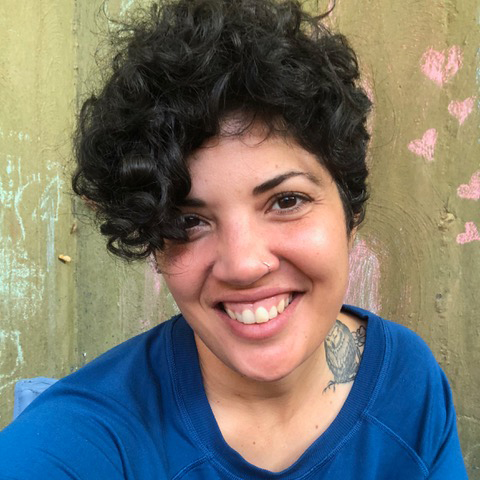
In this series, Shawna Ayoub moves "beyond a book review" in not only recommending great books by diverse writers but highlighting a technique to apply to your own writing practice.
I am once again breaking away from my regularly scheduled review of books by LGBTQIA+ and BIPOC writers to bring you something different.
My readership is a journey into the corners of speculative literature. I regularly Google lists of current post-apocalyptic suggestions and keep “to-read” albums on my phone of anything and everything that looks vaguely interesting from my wanderings through bookshops. I read every day for upwards of an hour. It’s most of how I fall asleep. And I read quickly. So I make my way through plenty of books each month, often using the trick my BFF taught me: download as many ebooks as allowed by the library to my Kindle, put my Kindle in airplane mode to prevent them from being removed from my device without preventing them from being offered to the next-in-line reader, read all, turn wi-fi back on, repeat.
This hack has served me well and led me to this month’s book pick.
The Great Transition by Nick Fuller Googins
Googins is a teacher and writer who crafted a brilliant novel about the climate crisis, those who get away with contributing to it, and those who choose to take matters into their own hands. It’s a politically charged look at where the globe is headed when it comes to climate change. Googins posits a future in which we reclaim our world. Heal it. But the billionaires (think corporations or celebrities like Taylor Swift who jet set while buying carbon tokens—as if that does anything meaningful to offset carbon emissions—or politicians who refuse to enact meaningful laws to curb emissions because it curbs their in-pocket margins) are left free and clear of their crimes despite the billions who died as a result of their choices. Never doubt that those choices were conscious.
This story focuses on Emi and her father, Larch, as they search for her mother, Kristina. Both Larch and Kristina served during the Great Transition, helping to fight fires and restore buildings after the ice sheets collapsed. They are heroes. Emi is in the process of interviewing them about their experiences for a school project when the annual Day Zero celebrations turn from a party in memory of the first post-Transition day of clean emissions to a series of attacks on the still-living climate criminals. Kristina is away volunteering when this happens. Larch and Emi are near local explosions. They head out to find Kristina, convinced she knows something about the attacks.
As the transcripts of Emi’s interviews with her parents are revealed, their differences in opinion about life post-Transition calcifies. Tensions in their home become meaningful. Understandable. The point of view also shifts between Emi and Larch for the majority of the novel, so we learn about Larch’s Transition experience, what he does and doesn’t share with Emi, and why. We learn what Emi has figured out on her own, the stressors she’s dealing with, and the stage is set for events as they unfold throughout the search for Kristina and the close of the book.
Cooperation and accountability
I’ll share that I wanted more from the ending, but I also found it realistic. Ultimately, this book is hopeful. It tells a story where not only does the planet heal through global cooperation, but the criminals are punished. Can we have that? What will that look like? What does recovery look like? This book shows us possibilities, but Googins doesn’t try to make them perfect. I appreciate that.
What I appreciate most right now is the hope. This timeline is tough, especially for those of us who are multiply marginalized. Or worse, living under genocide. Hope has felt sparse and slippery, which makes the opportunity to immerse ourselves in a version of our world where healing is collective feels rich and deserved.
A writing exercise
Imagine the worst has happened: catastrophe on a global scale. Write a story about either people living after the survivors have cooperated to recover or how the cooperation took place.
Have you ever tried writing a survival story before? Have you ever imagined what life after a global disaster might look like for those who survive it? Will you try this exercise? Read this book? Let us know how it goes in the comments.
If this month’s title sounds intriguing to you, consider purchasing your own copy of The Great Transition from Bookshop.org in support of independent bookstores across the U.S.
Read this post on the Center's Substack and subscribe, if you haven't already, to receive posts like this in your inbox every Wednesday.
